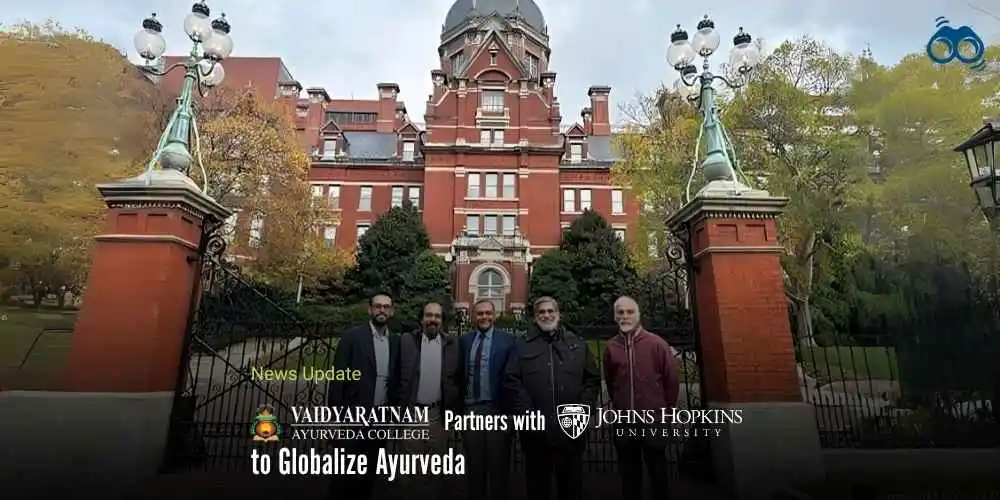Ayurveda’s Future Lies in Adaptability and Global Collaboration, Experts Say
Balagopal Urges Scientific Innovation in Ayurveda at Founder’s Day Event
Ayurveda, often referred to as the “science of life,” is one of the world’s oldest systems of natural medicine, having originated in India over 5,000 years ago. It continues to hold significant relevance today, particularly in managing chronic ailments, strengthening immunity, and promoting holistic well-being. Nevertheless, to ensure its sustained effectiveness and wider global acceptance, it is increasingly important to adopt scientific methodologies such as clinical validation of treatments, enhanced manufacturing standards, and consistent quality assurance.
This call for modernisation was notably emphasised by Finance Minister K.N. Balagopal during the Vaidyaratnam Founder’s Day celebrations. While acknowledging Ayurveda’s growing international presence, he pointed out that obtaining global certification remains a major hurdle. His remarks underscored the necessity of integrating traditional knowledge with modern scientific practices to strengthen Ayurveda’s credibility and global reach.
The Minister further urged the Ayurveda sector to embrace scientific approaches in medicine production and to deepen its engagement with contemporary medical science. He highlighted Vaidyaratnam’s collaboration with Johns Hopkins University as a commendable initiative aimed at raising Ayurveda’s international profile. In addition, he reaffirmed the State government’s continued support and praised Vaidyaratnam Oushadhasala, established in 1941, for its enduring contribution to the advancement of Ayurveda.
Delivering the commemorative address, Prof. Dr B. Ananthakrishnan, Vice Chancellor of Kalamandalam, paid tribute to Ashtavaidyan E.T. Neelakandhan Mooss and drew attention to the historical link between art and healing in Kerala. He advocated for greater recognition of Ayurveda as a credible alternative to Western medicine and lauded Vaidyaratnam’s pioneering role in preserving and promoting traditional practices.
Meanwhile, Ashtavaidyan Dr E.T. Neelakandhan Mooss, Managing Director of the Vaidyaratnam Group, spoke on the revival of Marma Chikitsa and Yoga Therapy, once considered lost traditions. He encouraged both practitioners and students to recognise the contemporary relevance of Marma Chikitsa and its potential to further enrich Ayurvedic practice. The event also featured a panel discussion titled “Marma and Orthopaedics: Exploring the Intersection of Traditional and Modern Practices,” which examined how ancient healing techniques can be effectively integrated with modern orthopaedic science. In essence, the celebrations reaffirmed that Ayurveda’s progress depends on preserving its heritage while embracing scientific innovation.
Editor’s Note:
The Vaidyaratnam Founder’s Day celebrations went beyond tradition, offering thoughtful insight into the future of Ayurveda. As one of the world’s oldest healing systems, Ayurveda holds deep cultural value, but in today’s changing healthcare landscape, tradition must be matched with scientific progress. Finance Minister K.N. Balagopal highlighted the growing global interest in Ayurveda, while noting key challenges like international certification and the need for scientific validation. He stressed the importance of integrating modern science, pointing to the Vaidyaratnam-Johns Hopkins partnership as a positive example. The revival of practices like Marma Chikitsa and Yoga Therapy showed that innovation can respect tradition. Prof. Dr. B. Ananthakrishnan’s address and the panel on orthopaedics underlined the value of combining traditional and modern medicine.
According to Skoobuzz, the main message for Ayurveda practitioners is that keeping its rich tradition alive means being open to change. To move forward, Ayurveda must focus on research, clear standards, and working together with other fields.














0 Comments (Please Login To Continue)